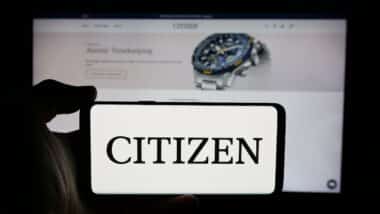 Three plaintiffs who claim Invokana linked to diabetic ketoacidosis may be on their way to a multidistrict litigation on the other side of the country.
Three plaintiffs who claim Invokana linked to diabetic ketoacidosis may be on their way to a multidistrict litigation on the other side of the country.
Plaintiffs Terry W., Polley D. and Robert O. all allege they developed diabetic ketoacidosis after taking Invokana, a relatively new drug designed to lower the high levels of blood sugar associated with type-2 diabetes.
Invokana, also known as canagliflozin, was originally FDA-approved for the treatment of type-2 diabetes in March 2013.
It is one of a newer class of diabetes drugs called SGLT2 inhibitors, and it is the first of that class of drugs to earn FDA approval. These drugs work by reducing the reabsorption of glucose that happens in the kidneys.
Invokana quickly became popular after its release, with sales reaching $278 million in the first quarter of 2015 alone. However, the plaintiffs cite reports of Invokana linked to diabetic ketoacidosis.
They believe their own episodes of this potentially deadly condition are attributable to the Invokana they took.
They argue defendant Janssen Pharmaceuticals and other companies involved in the manufacture and marketing of Invokana should have disseminated a proper warning about the risk of ketoacidosis associated with Invokana.
Ketoacidosis is a condition in which the blood becomes dangerously acidic due to the presence of acidic compounds known as ketones. These ketones are a by-product of fat metabolism. The body sometimes metabolizes more fat when it can’t get enough glucose to meet its energy needs.
Ketoacidosis is considered a medical emergency. Patients who suffer this condition are at risk for coma and possibly death.
Plaintiffs: Invokana Linked to Diabetic Ketoacidosis
After Invokana began to circulate through the pharmaceutical market, the FDA began receiving reports of diabetic ketoacidosis that occurred in conjunction with Invokana treatment, the plaintiffs say.
The FDA responded with a May 2015 warning, alerting patients and doctors to the possibility of Invokana linked to diabetic ketoacidosis.
That same month, a report by the Institute for Safe Medication Practices noted these reports of ketoacidosis and raised the question whether the risk of that condition outweighed any benefits Invokana might offer, the plaintiffs say.
The plaintiffs originally filed their claims in the Superior Court for San Diego County, Calif. Janssen has since removed the action to federal court.
The Invokana MDL
Now that the claim is in the federal court system, Janssen says it will seek to have it transferred to the multidistrict litigation, or MDL, recently created in a New Jersey federal court.
The Invokana MDL was created in December 2016 by the federal Judicial Panel on Multidistrict Litigation (JPML). Current and future Invokana lawsuits will be transferred to this litigation in the District of New Jersey so that pretrial procedures can be coordinated.
This Invokana Lawsuit is Case No. 3:17-cv-00110 in the U.S. District Court for the Southern District of California. The Invokana MDL is In re: Invokana (Canagliflozin) Products Liability Litigation, MDL No. 2750 in the U.S. District Court for the District of New Jersey.
In general, Invokana lawsuits are filed individually by each plaintiff and are not class actions.
Do YOU have a legal claim? Fill out the form on this page now for a free, immediate, and confidential case evaluation. The attorneys who work with Top Class Actions will contact you if you qualify to let you know if an individual lawsuit or class action lawsuit is best for you. Hurry — statutes of limitations may apply.
ATTORNEY ADVERTISING
Top Class Actions is a Proud Member of the American Bar Association
LEGAL INFORMATION IS NOT LEGAL ADVICE
Top Class Actions Legal Statement
©2008 – 2025 Top Class Actions® LLC
Various Trademarks held by their respective owners
This website is not intended for viewing or usage by European Union citizens.
Get Help – It’s Free
Join a Free Invokana Class Action Lawsuit Investigation
If you or a loved one suffered ketoacidosis or kidney failure after taking Invokana, you may have a legal claim. See if you qualify to pursue compensation and join a free diabetes medication class action lawsuit investigation by submitting your information for a free case evaluation.
An attorney will contact you if you qualify to discuss the details of your potential case.
Please Note: If you want to participate in this investigation, it is imperative that you reply to the law firm if they call or email you. Failing to do so may result in you not getting signed up as a client, if you qualify, or getting you dropped as a client.
Oops! We could not locate your form.












